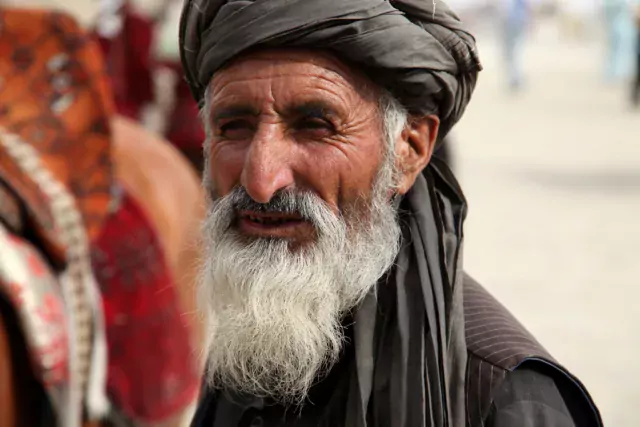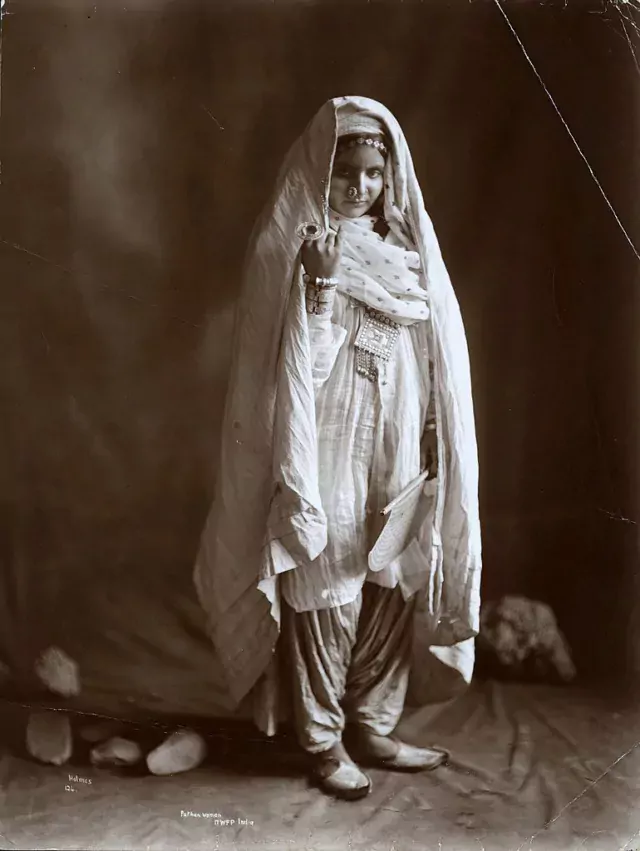
Creator: Jeremy Weate CC BY 2.0 DEED no changes

Wikimedia Commons
From The Economist:
The Pashtun Question: The Unresolved Key to the Future of Pakistan and Afghanistan. By Abubakar Siddique. Hurst; 299 pages; $48.50 and £35
This is a thoroughly readable account of the Pashtuns, Pakistan’s second-largest ethnic group, which is settled on both sides of the border with Afghanistan. Abubakar Siddique is a Pashtun who has covered his fellow tribespeople for years for Radio Free Europe. Much of his work has focused on the Pashtuns’ tragic entanglement with Islamist militancy. The Taliban and its various offshoots on both sides of the border are an almost exclusively Pashtun movement. Militancy began after the British split the Pashtuns’ historic lands between India and Afghanistan, triggering numerous “frontier jihads”. After independence Pakistan backed Pashtun Islamists against nationalists who dreamed of creating a united Pashtunistan. Pakistan’s government in Islamabad also sponsored Islamist rebellions against the government in Kabul and, during Afghan resistance to the Soviet occupation in the 1980s, directed American resources to the most extreme Pashtun fundamentalists. This helped dislodge the Russians but radicalised and militarised many Pashtuns. More than a million have died since 1979 in wars involving Russia, American-led forces and other Afghans. Support for Islamists also backfired on Pakistan. Even though Pakistan helped the Afghan Taliban seize power from an American-backed government in 2021, the Taliban refuse to do Pakistan’s bidding. The Pakistani Taliban—an offshoot—have repeatedly turned their guns on Pakistan itself.
A Case of Exploding Mangoes. By Mohammed Hanif. Knopf; 336 pages; $16.95. Vintage; £9.99
Perhaps because it is such a troubled place, Pakistan produces fabulous art. “Joyland”, a film from 2022 about a man who falls in love with a transgender dancer, was rightly praised. The paintings of Salman Toor sell for more than $1m. The country also has many fine authors writing in English, including Mohammed Hanif. His debut novel, “A Case of Exploding Mangoes”, is a satire about the death of Zia ul Haq, the military dictator who seized power in 1977 and was largely responsible for Pakistan’s Islamisation. The book imagines the events leading up to the explosion of his plane on August 17th 1988 through a series of darkly comic episodes. Many of Mr Hanif’s characters want the pious and paranoid general dead. A bomb in a consignment of mangoes (Pakistan’s national fruit) is just one of the weapons that would-be assassins consider. The cruelty and absurdity of Zia’s rule is captured by the story of a blind woman who is gang-raped, then stoned for committing adultery. Mr Hanif trained to become an air-force pilot during the Zia era. One of Zia’s would-be assassins is also a trainee pilot. The sequences set in the Pakistan Air Force Academy are worthy of Joseph Heller.
Travels in a Dervish Cloak: Adventures in Pakistan. By Isambard Wilkinson. Eland Publishing; 324 pages; £16.99
For all its maddening problems, Pakistan is a beguiling place. Isambard Wilkinson identifies much of what it is that captivates. He was the Daily Telegraph’s correspondent in Pakistan (and also wrote for The Economist) at a tumultuous time, covering the fall of Musharraf, the Taliban takeover of the Swat valley and the assassination of Benazir Bhutto. But these great events are secondary to his search for “the quiddity of Pakistan”. It helps that he fell in love with the place as a teenager, when he accompanied his grandmother, a Raj-era Anglo-Indian, on visits to see her old friend, a grande dame of Lahore known as “the Begum”. A beautiful writer, Mr Wilkinson paints a warm and generous picture of a diverse country of tribal chiefs and mountain valleys still populated by pagan tribes. But the problems are never far away. The Sufi shrines that he regards as the “pulses of Old Pakistan” are blown up by jihadis who hate tolerant, syncretic strains of Islam. Mr Wilkinson’s warnings that the “Heath Robinson contraption” of the Pakistani state could fall apart are all the more powerful coming from such an admirer of the country.
Link to the rest at The Economist